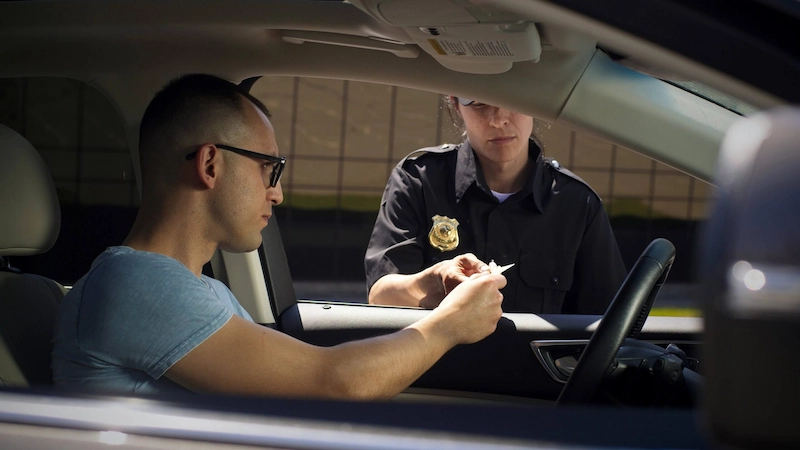According to the United States Department of Transportation, as of 2023, there are approximately 233 million licensed drivers in the United States, out of the total United States population of 332 million people. According to USA Today, younger members of Generation Z make up about 12.4% of all licensed drivers.
Possessing a driver’s license means you are legally allowed to operate a vehicle. It suggests that you have received training in vehicle safety and understand the principles of responsible driving. A driver’s license is a way to regulate and reduce the risk of accidents on the roads.
Is driving without a license a felony? In most states, driving without a license is considered a serious offense. In some areas, it is classified as a misdemeanor, and in the worst-case scenario, as a felony. The penalties in your state can include fines, community service, and jail time, depending on the statute.
In this article, you will learn what happens when you repeatedly drive without a license or if your unlicensed activity coincides with a more serious crime.
Understanding Unlicensed Driving: Definitions and Context
Unlicensed driving is considered driving without formal permission or authority. Most often, this indicates that the driver has either never obtained a license, has a license that is about to expire, or has already faced suspension.
Unlicensed driving rules can be different in each state because states have their own laws about driving a car. Renick Law Firm, PLLC, says that it’s important to know that driving without a license should be taken seriously since it can lead to serious legal problems.
Knowledge of the serious consequences of unlawful driving highlights the importance of possessing a valid driving license.
Misdemeanor Charges: Consequences and Penalties
Driving without a license often results in misdemeanor charges and can lead you to pay a fine ranging from hundreds to thousands of dollars.
Depending on the nature of the laws in your state, you may be required to complete community service hours or even serve a short jail sentence of up to a year. The charge will also appear on your driving record and may result in points against your license, which could affect your license renewal.
If you have misdemeanor charges, the insurance company will classify you as a high-risk individual and raise your insurance premiums to reflect your status.
Felony Charges: When Driving Without a License Becomes Serious
Many people view driving without a license as a relatively petty crime. In some situations, it may escalate into felony charges.
If you have been convicted more than once of driving without a license, it could be considered a felony under the law. Any additional crimes you may have committed while driving without a license, such as DUI or reckless driving, would aggravate the penalties.
A felony conviction will affect your employment chances, relationships, and more. Take legal driving precautions whenever possible.
Factors Influencing the Severity of Charges
The severity of charges for driving without a license can be determined by several factors. Your driving record is an important factor and having previous offenses can lead to more serious penalties.
If an accident was involved or a crime was committed, the charges against you will be more severe. The laws of the state where you were driving affect the severity. Some states impose stricter penalties for unlicensed driving than others.
Knowing the potential consequences of driving without a license will help you plan accordingly if you are involved in a similar situation.
Legal Options and Defenses for Unlicensed Drivers
There are several legal channels and defenses that you can utilize if you are faced with charges of unlicensed driving.
A common defense is that you were unaware of an expired license or a suspension. You could show that you were operating a motor vehicle in an emergency situation.
Another defense involves challenging the legality of the traffic stop. If the police had no valid reason to stop you, the charges against you may be dismissed.
If your case does not go well at trial, you can try plea bargaining for lower penalties. It is recommended that you consult with an experienced attorney who can best advise you on the legal options available and which path best fits the specifics of your case.
Read Also – The Ultimate Guide to Shopping for Branded Perfumes Online







